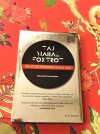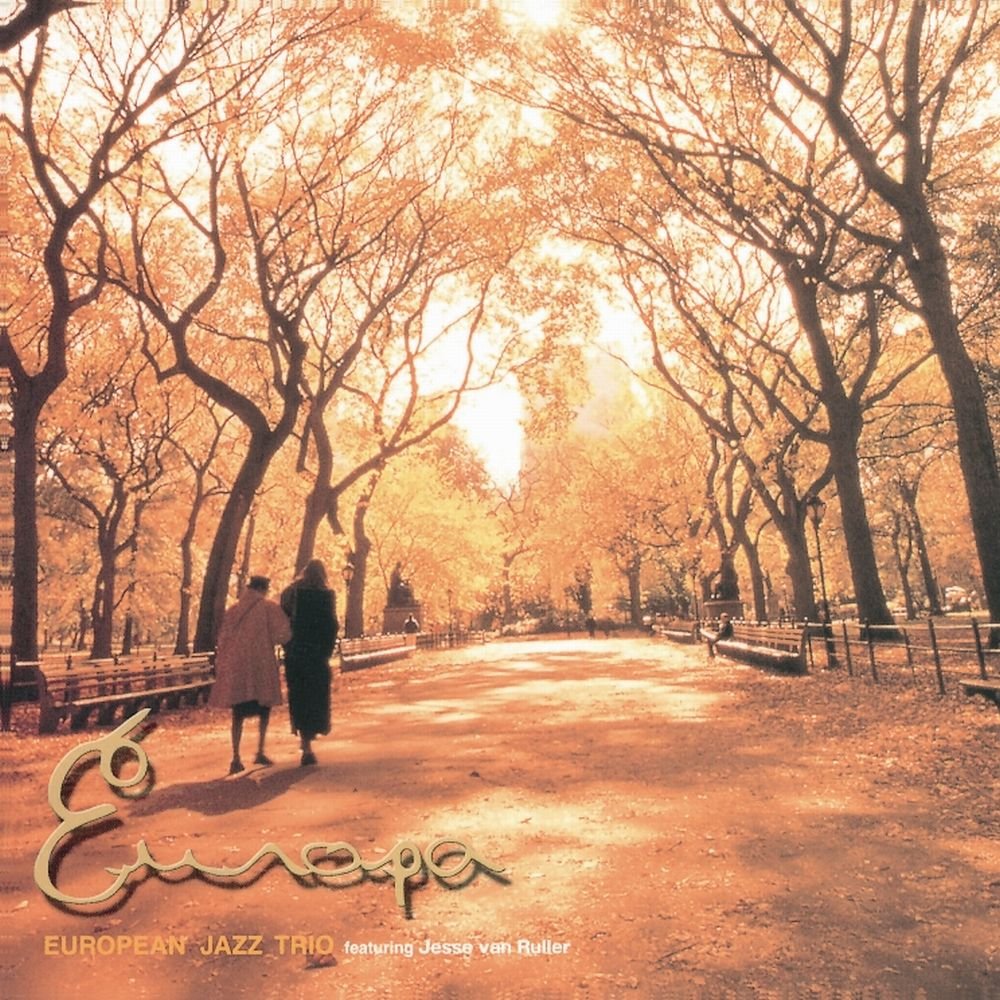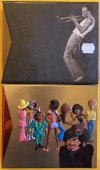You are using an out of date browser. It may not display this or other websites correctly.
You should upgrade or use an alternative browser.
You should upgrade or use an alternative browser.
All That Jazz ...
- Thread starter Nikhil
- Start date
Nikhil, any idea what’s on the CD?
Recordings from that era, perhaps?
Haven't been able to take a look.
But as you said, probably a sampling of music.
The Marco Pacci Collection – Taj Mahal Foxtrot
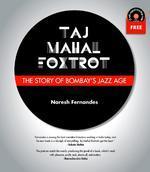 www.tajmahalfoxtrot.com
www.tajmahalfoxtrot.com
.
Found this on discogs. Do let us know when you get a chance to listen to the CD.
Taj Mahal Foxtrot CD
Taj Mahal Foxtrot CD
It's Sunday morning forum time! How’s everyone doing?
Just went through all the posts and comments from the past week… Those of you who appreciated my ramblings, you’re very kind. If I’m posting more, the blame lies squarely with Vivek who’s been pushing me for ages… but now I’m glad he did. So thank you, Vivek — you were right, it feels nice to hang, even if virtually, with a like-minded bunch; thank you, Nikhil, for starting this thread (it’s got my vote for being the best spot in this forum – the temperature’s perfect, the vibe is easy; and thank you to all who have kept this place humming. And with that out of the way, let’s conversate*, shall we?
Moktan mentioned the “coalescing of jazz with the quotidian” — that’s it, that’s my thing right there. When I was first beginning to be aware of jazz, one encountered this music almost exclusively in sit-down affairs typically organised by consulates, burra-sahib-type corporate houses or expensive alcohol brands - the kind of events in which one felt awkward in scruffy jeans, embarrassed to cough or accidentally scrape one’s chair on the floor, and somewhat self-conscious of the heavy-lidded, red-eyed state that one was perpetually in during the time (cough). It was all so formal and… uptight! At some point in time, rock and roll (bless its pointed little heart) had become the people’s music while jazz turned into this high-minded pursuit, an intellectual exercise, something to be appreciated by mature sophisticates in wine-and-cheese soirees, removed from real life and the world around us. For newcomers, then and now, it felt and feels like something to be approached with hushed awe and reverence… and that’s bullshit, of course. Jazz should be bubbling away in the humdrum of daily life, elevating the ordinary. It’s music to shine your shoes to. I hear you, Moktan.
For today, I want to recommend something vital, street-wise and jacked into the spirit of the times, as far from an air-conditioned, white-gloved event as one can get. It’s from the new album by Sons of Kemet, released only a few weeks ago, titled Black To The Future (Impulse, 2021). Zero in on the penultimate track Throughout the Madness, Stay Strong… it starts hesitantly before steadily thickening into a funky stew. Before long, we’re in the middle of a hot and sweaty, tropical swamp that stretches from Dixieland to Soweto. It’s a fat-grooved room-shaker that’s best played loud. Get up, get everyone in the house up. And listen to that horn cutting right through everything, first quiet, then rising, strutting, taunting, exhorting — tell me honestly, is that a solo or what? Eh? Eh?
But seriously, go back to the top and listen to the whole album. It may well turn out to be one of the most seminal albums of this century, charged with political import and yet so danceable! At times I asked myself, “Is this jazz?” and a voice answered, “Does it matter?”
On a separate note, that wonderful Hobsbawm excerpt (everyone should read The Jazz Scene if they haven’t already) name checked Philip Larkins and reminded me that his book was lying unread on my shelves for a couple of years. So I’ve pulled it out and am finally giving it the love it deserves. Queuing up Taj Mahal Foxtrot as my next read (thanks again, Nikhil!) and trawling the Taschen catalogue for the books on album covers (thanks, Coaltrain and Sushant!). Now only if I can find a copy of Whitney Balliett’s Collected Works…

Be good, people - catch you all next Sunday.
—Orko, Committed Reader of Fine Books
——
*Not a word. Does it matter?
Just went through all the posts and comments from the past week… Those of you who appreciated my ramblings, you’re very kind. If I’m posting more, the blame lies squarely with Vivek who’s been pushing me for ages… but now I’m glad he did. So thank you, Vivek — you were right, it feels nice to hang, even if virtually, with a like-minded bunch; thank you, Nikhil, for starting this thread (it’s got my vote for being the best spot in this forum – the temperature’s perfect, the vibe is easy; and thank you to all who have kept this place humming. And with that out of the way, let’s conversate*, shall we?
Moktan mentioned the “coalescing of jazz with the quotidian” — that’s it, that’s my thing right there. When I was first beginning to be aware of jazz, one encountered this music almost exclusively in sit-down affairs typically organised by consulates, burra-sahib-type corporate houses or expensive alcohol brands - the kind of events in which one felt awkward in scruffy jeans, embarrassed to cough or accidentally scrape one’s chair on the floor, and somewhat self-conscious of the heavy-lidded, red-eyed state that one was perpetually in during the time (cough). It was all so formal and… uptight! At some point in time, rock and roll (bless its pointed little heart) had become the people’s music while jazz turned into this high-minded pursuit, an intellectual exercise, something to be appreciated by mature sophisticates in wine-and-cheese soirees, removed from real life and the world around us. For newcomers, then and now, it felt and feels like something to be approached with hushed awe and reverence… and that’s bullshit, of course. Jazz should be bubbling away in the humdrum of daily life, elevating the ordinary. It’s music to shine your shoes to. I hear you, Moktan.
For today, I want to recommend something vital, street-wise and jacked into the spirit of the times, as far from an air-conditioned, white-gloved event as one can get. It’s from the new album by Sons of Kemet, released only a few weeks ago, titled Black To The Future (Impulse, 2021). Zero in on the penultimate track Throughout the Madness, Stay Strong… it starts hesitantly before steadily thickening into a funky stew. Before long, we’re in the middle of a hot and sweaty, tropical swamp that stretches from Dixieland to Soweto. It’s a fat-grooved room-shaker that’s best played loud. Get up, get everyone in the house up. And listen to that horn cutting right through everything, first quiet, then rising, strutting, taunting, exhorting — tell me honestly, is that a solo or what? Eh? Eh?
But seriously, go back to the top and listen to the whole album. It may well turn out to be one of the most seminal albums of this century, charged with political import and yet so danceable! At times I asked myself, “Is this jazz?” and a voice answered, “Does it matter?”
On a separate note, that wonderful Hobsbawm excerpt (everyone should read The Jazz Scene if they haven’t already) name checked Philip Larkins and reminded me that his book was lying unread on my shelves for a couple of years. So I’ve pulled it out and am finally giving it the love it deserves. Queuing up Taj Mahal Foxtrot as my next read (thanks again, Nikhil!) and trawling the Taschen catalogue for the books on album covers (thanks, Coaltrain and Sushant!). Now only if I can find a copy of Whitney Balliett’s Collected Works…

Be good, people - catch you all next Sunday.
—Orko, Committed Reader of Fine Books
——
*Not a word. Does it matter?
Last edited:
Philip Larkin? No thanks! For obvious reasons… 
(not my words below)
Philip Larkin’s review of A Love Supreme appeared in the Daily Telegraph in July 1965. He wrote about it alongside Coltrane’s 1961 album My Favourite Things, and largely responded as he tended to when presented with the music we know as Modern Jazz: witheringly. The final section, titled Psalm, may have displayed “an increasing awareness of how to dispose his music for aesthetic or emotional effect” — but too often, he said, Coltrane was responsible for a dour kind of chaos. His playing, Larkin wrote, resulted in “a thin, keening noise, sometimes sour as an oboe, at times expiring in an upper-register squeak, possessed continually by an almost Scandinavian unloveliness.” Worse, Coltrane’s claims to spiritual depth hinted at “a degree of self seriousness most inimical to an artist”, summed up on the sleeve in liner notes maligned as “a lot of pretentious guff”. Playing things for laughs and citing the idea of a correct way of doing things, Larkin also said this:
His solos seem to me to bear the same relation to proper jazz solos as those drawings of running dogs, showing their legs in all positions so that they appear to have about fifty of them, have to real drawings. Once, they are amusing and even instructive. But the whole point of drawing is choosing the right line, not drawing fifty alternatives. Again, Coltrane’s choice and treatment of themes is hypnotic, repetitive, monotonous: he will rock backwards and forwards between two chords for five minutes, or pull a tune to pieces like someone subtracting petals from a flower. Apart from the periodic lashing of himself into a frenzy, it is hard to attach any particular emotional purpose to his work.
These lines are as mischievous, wry and occasionally poetic (“subtracting petals from a flower”) as you would expect Larkin’s prose to be; and to any Coltrane disciple, they will — of course! — sound outrageous. For all that I find in A Love Supreme that is both moving and mesmerising, I do not quite count myself as such, and can just about see where Larkin was coming from: for sure, Coltrane often played frantically, and was as fond of repetition as Love Supreme’s simple theme suggested. But Larkin’s swingeing judgement of Coltrane’s motivations and abiding aesthetic still strikes me as misplaced, and even absurd: how one listens to him and divines little “emotional purpose” is beyond me; that Larkin could listen to his records and be repelled by the aforementioned “Scandinavian unloveliness” seems equally baffling. Even as an agnostic, I read the liner notes for A Love Supreme, and listen to the music, and find myself moved in ways I cannot quite express, which gets to the heart of Coltrane’s mystic intent, and only underlines the record’s creative accomplishment.
In an unpublished anti-obituary written a month after Coltrane died, he said this: “If he was boring, he was enormously boring. If he was ugly, he was massively ugly… I regret Coltrane’s death, as I regret the death of any man, but I can’t conceal that it leaves in jazz a vast, a blessed silence.”
(not my words below)
Philip Larkin’s review of A Love Supreme appeared in the Daily Telegraph in July 1965. He wrote about it alongside Coltrane’s 1961 album My Favourite Things, and largely responded as he tended to when presented with the music we know as Modern Jazz: witheringly. The final section, titled Psalm, may have displayed “an increasing awareness of how to dispose his music for aesthetic or emotional effect” — but too often, he said, Coltrane was responsible for a dour kind of chaos. His playing, Larkin wrote, resulted in “a thin, keening noise, sometimes sour as an oboe, at times expiring in an upper-register squeak, possessed continually by an almost Scandinavian unloveliness.” Worse, Coltrane’s claims to spiritual depth hinted at “a degree of self seriousness most inimical to an artist”, summed up on the sleeve in liner notes maligned as “a lot of pretentious guff”. Playing things for laughs and citing the idea of a correct way of doing things, Larkin also said this:
His solos seem to me to bear the same relation to proper jazz solos as those drawings of running dogs, showing their legs in all positions so that they appear to have about fifty of them, have to real drawings. Once, they are amusing and even instructive. But the whole point of drawing is choosing the right line, not drawing fifty alternatives. Again, Coltrane’s choice and treatment of themes is hypnotic, repetitive, monotonous: he will rock backwards and forwards between two chords for five minutes, or pull a tune to pieces like someone subtracting petals from a flower. Apart from the periodic lashing of himself into a frenzy, it is hard to attach any particular emotional purpose to his work.
These lines are as mischievous, wry and occasionally poetic (“subtracting petals from a flower”) as you would expect Larkin’s prose to be; and to any Coltrane disciple, they will — of course! — sound outrageous. For all that I find in A Love Supreme that is both moving and mesmerising, I do not quite count myself as such, and can just about see where Larkin was coming from: for sure, Coltrane often played frantically, and was as fond of repetition as Love Supreme’s simple theme suggested. But Larkin’s swingeing judgement of Coltrane’s motivations and abiding aesthetic still strikes me as misplaced, and even absurd: how one listens to him and divines little “emotional purpose” is beyond me; that Larkin could listen to his records and be repelled by the aforementioned “Scandinavian unloveliness” seems equally baffling. Even as an agnostic, I read the liner notes for A Love Supreme, and listen to the music, and find myself moved in ways I cannot quite express, which gets to the heart of Coltrane’s mystic intent, and only underlines the record’s creative accomplishment.
In an unpublished anti-obituary written a month after Coltrane died, he said this: “If he was boring, he was enormously boring. If he was ugly, he was massively ugly… I regret Coltrane’s death, as I regret the death of any man, but I can’t conceal that it leaves in jazz a vast, a blessed silence.”
Philip Larkin’s review of A Love Supreme appeared in the Daily Telegraph in July 1965. He wrote about it alongside Coltrane’s 1961 album My Favourite Things, and largely responded as he tended to when presented with the music we know as Modern Jazz: witheringly. The final section, titled Psalm, may have displayed “an increasing awareness of how to dispose his music for aesthetic or emotional effect” — but too often, he said, Coltrane was responsible for a dour kind of chaos. His playing, Larkin wrote, resulted in “a thin, keening noise, sometimes sour as an oboe, at times expiring in an upper-register squeak, possessed continually by an almost Scandinavian unloveliness.” Worse, Coltrane’s claims to spiritual depth hinted at “a degree of self seriousness most inimical to an artist”, summed up on the sleeve in liner notes maligned as “a lot of pretentious guff”. Playing things for laughs and citing the idea of a correct way of doing things,
Ha! I had no idea of Philip Larkin until now ... interesting!
.
Joe Farrell played a number of instruments: baritone, tenor and soprano sax, clarinet, flute and oboe, to name a few.
He also played alongside a diverse array of musicians, from Charles Mingus and Chick Corea, to Aretha Franklin and the Bee Gees(!]
Unfortunately, he doesn’t have too many albums as a leader; which is probably why many haven’t heard of him.
His first six albums, all for CTI, feature some great music and musicians: John McLaughlin, Chick Corea, Herbie Hancock, Elvin Jones, Stanley Clarke, and more. They’re also unusual dates for CTI, as they don’t feature the standard orchestral touches that the label favored.
Below is a track with McLaughlin that reminds me of electric Miles.
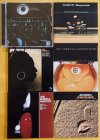
He also played alongside a diverse array of musicians, from Charles Mingus and Chick Corea, to Aretha Franklin and the Bee Gees(!]
Unfortunately, he doesn’t have too many albums as a leader; which is probably why many haven’t heard of him.
His first six albums, all for CTI, feature some great music and musicians: John McLaughlin, Chick Corea, Herbie Hancock, Elvin Jones, Stanley Clarke, and more. They’re also unusual dates for CTI, as they don’t feature the standard orchestral touches that the label favored.
Below is a track with McLaughlin that reminds me of electric Miles.

Ahem ! Larkin got it dead wrong ... he just does not get it tracks like- Love Supreme, Spiritual or My favourite things (many musicians have done their version of it) one particular enjoyable video is by John Mc Laughlin with an Indian Rasika Shekhar live in Berklee Valencia Spain have a listenPhilip Larkin? No thanks! For obvious reasons…
(not my words below)
Philip Larkin’s review of A Love Supreme appeared in the Daily Telegraph in July 1965. He wrote about it alongside Coltrane’s 1961 album My Favourite Things, and largely responded as he tended to when presented with the music we know as Modern Jazz: witheringly. The final section, titled Psalm, may have displayed “an increasing awareness of how to dispose his music for aesthetic or emotional effect” — but too often, he said, Coltrane was responsible for a dour kind of chaos. His playing, Larkin wrote, resulted in “a thin, keening noise, sometimes sour as an oboe, at times expiring in an upper-register squeak, possessed continually by an almost Scandinavian unloveliness.” Worse, Coltrane’s claims to spiritual depth hinted at “a degree of self seriousness most inimical to an artist”, summed up on the sleeve in liner notes maligned as “a lot of pretentious guff”. Playing things for laughs and citing the idea of a correct way of doing things, Larkin also said this:
His solos seem to me to bear the same relation to proper jazz solos as those drawings of running dogs, showing their legs in all positions so that they appear to have about fifty of them, have to real drawings. Once, they are amusing and even instructive. But the whole point of drawing is choosing the right line, not drawing fifty alternatives. Again, Coltrane’s choice and treatment of themes is hypnotic, repetitive, monotonous: he will rock backwards and forwards between two chords for five minutes, or pull a tune to pieces like someone subtracting petals from a flower. Apart from the periodic lashing of himself into a frenzy, it is hard to attach any particular emotional purpose to his work.
These lines are as mischievous, wry and occasionally poetic (“subtracting petals from a flower”) as you would expect Larkin’s prose to be; and to any Coltrane disciple, they will — of course! — sound outrageous. For all that I find in A Love Supreme that is both moving and mesmerising, I do not quite count myself as such, and can just about see where Larkin was coming from: for sure, Coltrane often played frantically, and was as fond of repetition as Love Supreme’s simple theme suggested. But Larkin’s swingeing judgement of Coltrane’s motivations and abiding aesthetic still strikes me as misplaced, and even absurd: how one listens to him and divines little “emotional purpose” is beyond me; that Larkin could listen to his records and be repelled by the aforementioned “Scandinavian unloveliness” seems equally baffling. Even as an agnostic, I read the liner notes for A Love Supreme, and listen to the music, and find myself moved in ways I cannot quite express, which gets to the heart of Coltrane’s mystic intent, and only underlines the record’s creative accomplishment.
In an unpublished anti-obituary written a month after Coltrane died, he said this: “If he was boring, he was enormously boring. If he was ugly, he was massively ugly… I regret Coltrane’s death, as I regret the death of any man, but I can’t conceal that it leaves in jazz a vast, a blessed silence.”
Cheers
Ahem ! Larkin got it dead wrong ... he just does not get it tracks like- Love Supreme, Spiritual or My favourite things (many musicians have done their version of it) one particular enjoyable video is by John Mc Laughlin with an Indian Rasika Shekhar live in Berklee Valencia Spain have a listen
Cheers
This is one of my all time favourite music videos on YouTube! I return to it every once in a while.
Rasika is mesmerizing. Wonder if she’s done an album yet.
Hello again, enthusiasts. Looks like it’s been a quiet week in here. Same for me… I spent it mostly horizontal, reading the infamous Larkin. More on that later.
First, the recommendation. The track is called Diane, written for Art Pepper’s first wife and can be found on the album titled The Art Pepper Quartet (Tampa, 1956). Exquisitely recorded, it starts by planting soft kisses on one’s ears. Draw the curtains, switch off the lights, mute the phones. When Pepper enters, he is languorous and achingly sweet. It’s a 3-minute heart melt, so beautiful that even his second wife once referred to it as “the jewel that is this love song.” Stop reading and listen to it first. Go on, I’ll wait right here.
Done? Now let’s talk about Larkin for a moment. As you both pointed out, Coaltrain and Goget, the man holds some outrageous views. I’m going through the book with eyebrows so raised that only the price of petrol can top it. He basically rails against modernism in jazz (and incidentally, also in literature and the visual arts), drawing a line in the sand between the pre-Parker and post-Parker era. I don’t agree with him obviously but you know what, it’s not a big deal — the man is entitled to his opinions after all, and indeed that makes this book all the more interesting because agreeing on everything is just boring, isn’t it? And his craft is impeccable — the old git can write. But, and this is a huge but, this distaste for modernism isn’t his most egregious crime. Larkin, I’m discovering, is also frighteningly racist with some obnoxious class prejudices. I never knew! Is this the same person who wrote the incredible MCMXIV? How can a man capable of such empathy and luminous poetry also be so small-minded and unpleasant? The mind reels.
But should I really be surprised? Van Morrison, maker of some of my favourite music, has turned into a WhatsApp uncle making surprisingly stupid statements on lockdown restrictions. On his latest album, he’s joined by Clapton who himself has a history of making bigoted comments. Lead Belly was a violent man, Steinbeck was a sadist, Modigliani was a dissolute alcoholic. And that brings us right back to Art Pepper who in his autobiography wrote dispassionately of voyeurism, domestic abuse, even rape. Now go back and hear that recommendation again. Same guy.
Last month, Shelley from Amsterdam asked Nick Cave, “Should we separate the artist from the art?” He replied, “I don’t think we can separate the art from the artist, nor should we need to. I think we can look at a piece of art as the transformed or redeemed aspect of an artist, and marvel at the miraculous journey that the work of art has taken to arrive at the better part of the artist’s nature. Perhaps beauty can be measured by the distance it has travelled to come into being. That bad people make good art is a cause for hope. To be human is to transgress, of that we can be sure, yet we all have the opportunity for redemption, to rise above the more lamentable parts of our nature, to do good in spite of ourselves, to make beauty from the unbeautiful, and to have the courage to present our better selves to the world. The moon is high and yellow in the sky outside my window. It is a display of sublime beauty. It is also a cry for mercy — that this world is worth saving. Mostly, though, it is a defiant articulation of hope that, despite the state of the world, the moon continues to shine. Hope too resides in a gesture of kindness from one broken individual to another or, indeed, we can find it in a work of art that comes from the hand of a wrongdoer. These expressions of transcendence, of betterment, remind us that there is good in most things, rarely only evil. Once we awaken to this fact, we begin to see goodness everywhere, and this can go some way in setting right the current narrative that humans are sh!t and the world is f*cked.”
Amen.
—Orko, Deeply Flawed Human
PS: A few Sundays ago, I wrote about rearranging my listening room. Among all the imperfect things in the world, this room would rank right near the top. Some rooms need to be tamed; mine needs to be wrestled to the ground. It’s small, it’s square, it’s stubborn. But after moving things around and allowing time for the newness to settle, I’m pleased to report that (I’ll say this very quietly so as not to jinx it) everything’s cooking. Mr. D is singing “I Contain Multitudes” (the perfect song for this post, perhaps?) and the rasp, the heft, the breath, the depth, it’s all there and, dare I say it, better than before. Goodness abounds. Bye for now, got to get back to the music and meditate on the things that break us and make us.
PPS: Really liked Joe Farrell (why haven’t I heard him before?); and Arnett Cobb (couldn’t find that particular album but heard a couple others which were excellent); and I especially loved that McLaughlin video with the students (John-ji is a personal favourite). Keep them coming please.
First, the recommendation. The track is called Diane, written for Art Pepper’s first wife and can be found on the album titled The Art Pepper Quartet (Tampa, 1956). Exquisitely recorded, it starts by planting soft kisses on one’s ears. Draw the curtains, switch off the lights, mute the phones. When Pepper enters, he is languorous and achingly sweet. It’s a 3-minute heart melt, so beautiful that even his second wife once referred to it as “the jewel that is this love song.” Stop reading and listen to it first. Go on, I’ll wait right here.
Done? Now let’s talk about Larkin for a moment. As you both pointed out, Coaltrain and Goget, the man holds some outrageous views. I’m going through the book with eyebrows so raised that only the price of petrol can top it. He basically rails against modernism in jazz (and incidentally, also in literature and the visual arts), drawing a line in the sand between the pre-Parker and post-Parker era. I don’t agree with him obviously but you know what, it’s not a big deal — the man is entitled to his opinions after all, and indeed that makes this book all the more interesting because agreeing on everything is just boring, isn’t it? And his craft is impeccable — the old git can write. But, and this is a huge but, this distaste for modernism isn’t his most egregious crime. Larkin, I’m discovering, is also frighteningly racist with some obnoxious class prejudices. I never knew! Is this the same person who wrote the incredible MCMXIV? How can a man capable of such empathy and luminous poetry also be so small-minded and unpleasant? The mind reels.
But should I really be surprised? Van Morrison, maker of some of my favourite music, has turned into a WhatsApp uncle making surprisingly stupid statements on lockdown restrictions. On his latest album, he’s joined by Clapton who himself has a history of making bigoted comments. Lead Belly was a violent man, Steinbeck was a sadist, Modigliani was a dissolute alcoholic. And that brings us right back to Art Pepper who in his autobiography wrote dispassionately of voyeurism, domestic abuse, even rape. Now go back and hear that recommendation again. Same guy.
Last month, Shelley from Amsterdam asked Nick Cave, “Should we separate the artist from the art?” He replied, “I don’t think we can separate the art from the artist, nor should we need to. I think we can look at a piece of art as the transformed or redeemed aspect of an artist, and marvel at the miraculous journey that the work of art has taken to arrive at the better part of the artist’s nature. Perhaps beauty can be measured by the distance it has travelled to come into being. That bad people make good art is a cause for hope. To be human is to transgress, of that we can be sure, yet we all have the opportunity for redemption, to rise above the more lamentable parts of our nature, to do good in spite of ourselves, to make beauty from the unbeautiful, and to have the courage to present our better selves to the world. The moon is high and yellow in the sky outside my window. It is a display of sublime beauty. It is also a cry for mercy — that this world is worth saving. Mostly, though, it is a defiant articulation of hope that, despite the state of the world, the moon continues to shine. Hope too resides in a gesture of kindness from one broken individual to another or, indeed, we can find it in a work of art that comes from the hand of a wrongdoer. These expressions of transcendence, of betterment, remind us that there is good in most things, rarely only evil. Once we awaken to this fact, we begin to see goodness everywhere, and this can go some way in setting right the current narrative that humans are sh!t and the world is f*cked.”
Amen.
—Orko, Deeply Flawed Human
PS: A few Sundays ago, I wrote about rearranging my listening room. Among all the imperfect things in the world, this room would rank right near the top. Some rooms need to be tamed; mine needs to be wrestled to the ground. It’s small, it’s square, it’s stubborn. But after moving things around and allowing time for the newness to settle, I’m pleased to report that (I’ll say this very quietly so as not to jinx it) everything’s cooking. Mr. D is singing “I Contain Multitudes” (the perfect song for this post, perhaps?) and the rasp, the heft, the breath, the depth, it’s all there and, dare I say it, better than before. Goodness abounds. Bye for now, got to get back to the music and meditate on the things that break us and make us.
PPS: Really liked Joe Farrell (why haven’t I heard him before?); and Arnett Cobb (couldn’t find that particular album but heard a couple others which were excellent); and I especially loved that McLaughlin video with the students (John-ji is a personal favourite). Keep them coming please.
Sushant Sharma
Well-Known Member
There are the great jazz Cats and then there are the Cool cats on this forum!
The track Diane is beautiful. "Patricia" by Art Pepper, written for his daughter is equally beautiful. You can hear the beauty and the strains in the relationship.
Perhaps my own take on Larkin's views (opinion to modern jazz and Coltrane's music) was similar to what you have very nicely put in your post @Orko and out of curiosity I ordered the book right away last Sunday (yet to arrive). Liking so much of John Coltrane's music, I thought I must take a look what Mr. Poet Laureate has to say.
The track Diane is beautiful. "Patricia" by Art Pepper, written for his daughter is equally beautiful. You can hear the beauty and the strains in the relationship.
Perhaps my own take on Larkin's views (opinion to modern jazz and Coltrane's music) was similar to what you have very nicely put in your post @Orko and out of curiosity I ordered the book right away last Sunday (yet to arrive). Liking so much of John Coltrane's music, I thought I must take a look what Mr. Poet Laureate has to say.
Last edited:
Sushant Sharma
Well-Known Member
This one took hold of me.
I must say, Orko, thou art truly a gifted wordsmith!
That bit about raised eyebrows and rising petrol prices was a real gas, no pun intended
Speaking of erudite prose, Nick Cave is no slouch either. That was quite an eloquent answer for a scruffy rock star!
I, too, have struggled to reconcile my feelings for an artiste vis-a-vis their art. Miles Davis, Chuck Berry and Jim Morrison, for example, weren‘t exactly paragons of virtue; but I’m still in thrall of their music. Perhaps, it’s also a function of what you heard first - the music or the life story.
That bit about raised eyebrows and rising petrol prices was a real gas, no pun intended
Speaking of erudite prose, Nick Cave is no slouch either. That was quite an eloquent answer for a scruffy rock star!
I, too, have struggled to reconcile my feelings for an artiste vis-a-vis their art. Miles Davis, Chuck Berry and Jim Morrison, for example, weren‘t exactly paragons of virtue; but I’m still in thrall of their music. Perhaps, it’s also a function of what you heard first - the music or the life story.
First, the recommendation. The track is called Diane, written for Art Pepper’s first wife and can be found on the album titled The Art Pepper Quartet (Tampa, 1956). Exquisitely recorded, it starts by planting soft kisses on one’s ears. Draw the curtains, switch off the lights, mute the phones. When Pepper enters, he is languorous and achingly sweet. It’s a 3-minute heart melt, so beautiful that even his second wife once referred to it as “the jewel that is this love song.” Stop reading and listen to it first. Go on, I’ll wait right here.
Orko you're elevating this thread to an awesome place!
And thanks for the Art Pepper recommendation ... one of my favorites but hadn't played his music in a while. May I recommend Las Cuevas De Mario from the "Smack Up" album while adding another anecdote to the "flawed" character narrative. Apparently Art Pepper made this song for his drug supplier while doing time in jail!
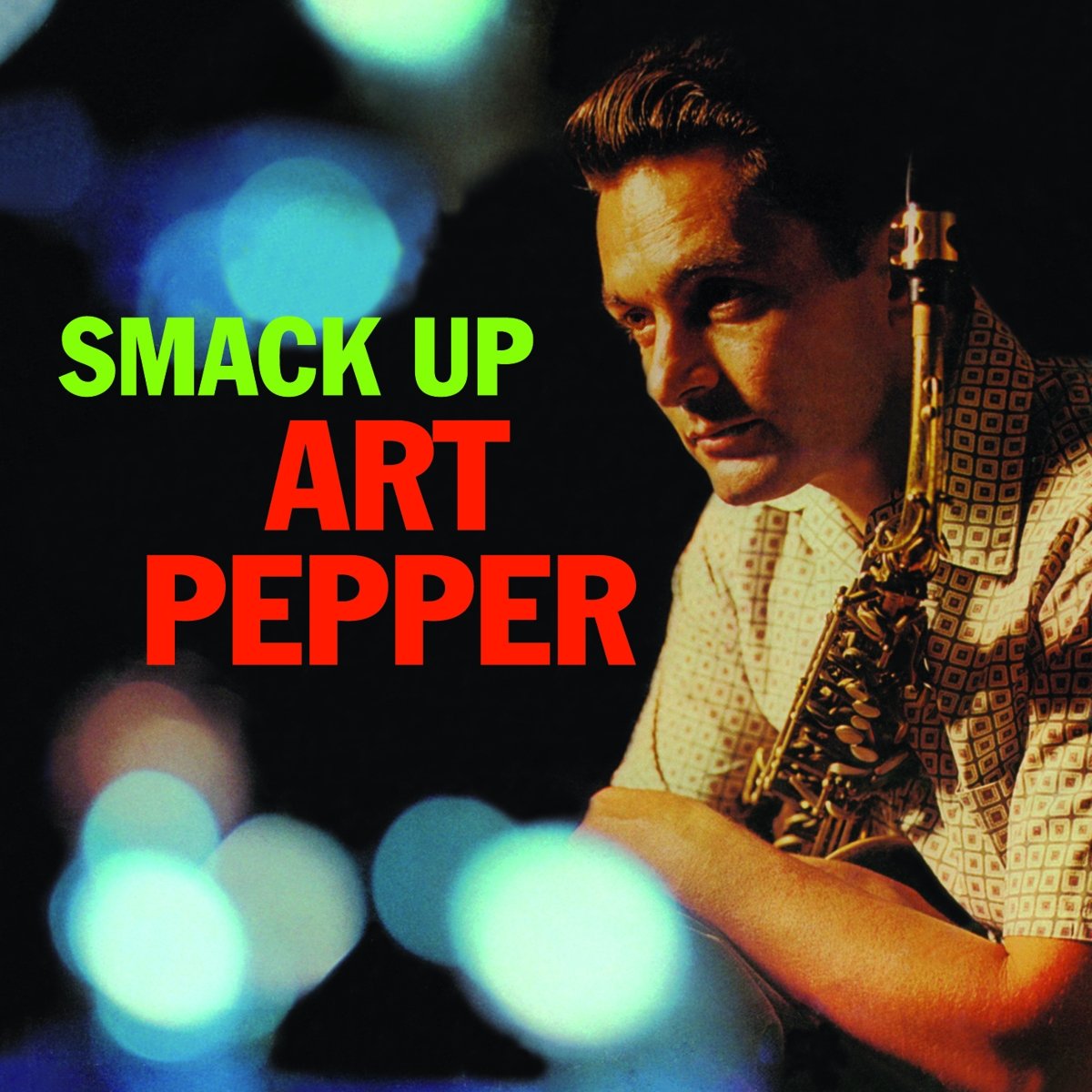
.
Superb album , thanks.And an awesome cover to boot!
That’s my only regret about having ditched vinyl. There’s a special fizz you get when you’re holding a 12” square work of art in your hands
View attachment 57647
The one downside to having a decent sized music collection is that one occasionally forgets what’s in there.
Pulled out this album after ages (I usually play Joe’s BN work) and was shocked at the lineup; or rather, that I had forgotten who they were.
John Scofield on guitar; Stefon Harris on vibes; Chaka Khan and Sting on vocals!
Great arrangement of a classic.
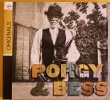
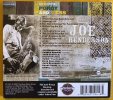
Pulled out this album after ages (I usually play Joe’s BN work) and was shocked at the lineup; or rather, that I had forgotten who they were.
John Scofield on guitar; Stefon Harris on vibes; Chaka Khan and Sting on vocals!
Great arrangement of a classic.


Fiftyfifty
Well-Known Member
@Sushant Sharma @OrkoThere are the great jazz Cats and then there are the Cool cats on this forum!
The track Diane is beautiful. "Patricia" by Art Pepper, written for his daughter is equally beautiful. You can hear the beauty and the strains in the relationship.
Perhaps my own take on Larkin's views (opinion to modern jazz and Coltrane's music) was similar to what you have very nicely put in your post @Orko and out of curiosity I ordered the book right away last Sunday (yet to arrive). Liking so much of John Coltrane's music, I thought I must take a look what Mr. Poet Laureate has to say.
There's an even more evocative version of Diane on his later album Promises Kept - with, I believe, Hank Jones on piano. Do gives it a listen.
Join WhatsApp Channel to get HiFiMART.com Offers & Deals delivered to your smartphone!
Similar threads
- Replies
- 5
- Views
- 950
- Replies
- 7
- Views
- 2K
- Replies
- 1
- Views
- 5K
- Replies
- 14
- Views
- 11K
- Replies
- 4
- Views
- 8K


